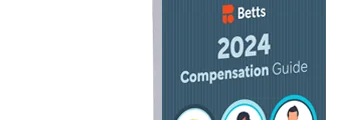Remote work is not traditional work that is simply conducted in a home office. There are many people whose natural inclination is to assume that the core difference between in-office work and remote work is location. This is inaccurate and, if not recognized, can be damaging to the entire practice of working remotely. The principles of remote work are different—the approach to conducting work is different, and it’s time to reconsider traditional thoughts on items such as meetings. Here is a list of things not to do when working remotely:
Dont’s
Be too hard on yourself
We are all our own worst critics, especially when reflecting on our craft. Self-criticism can take a toll on our mental health and bodies. When we think we aren’t being good enough, ruminative thoughts can decrease productivity. We are all just humans trying to make a living and whether or not your job is meaningful to you, eating yourself up about your work is never a healthy path. It’s crucial to think of mistakes or “bad work” as opportunities to learn and set goals. Learn how to be self-compassionate and ask for feedback from your supervisor so you can get a second opinion about your work.
Limit yourself to a 9-5
You aren’t a work machine. The 9-5 culture is dying, and part of that is because of the increase in remote work. Most managers highlight the flexibility of working from home and trust that as long as you are turning out good results, doing good work, and meeting deadlines, you will not need to be logged on for 8 hours straight. Focus on outcomes and don’t feel the need to be “on” for more hours than needed in a day if you have completed all your tasks for the day. The traditional “day job” schedule does not apply to remote work unless your supervisor says so, which is highly unlikely.
Avoid messes in your work area
You might think your messy desk isn’t affecting you, but when our space is a mess, so are we. Our workplace’s physical environment is a reflection of how we are doing and has an effect on the way we work. We lose time when we have to search through the clutter of paper and even the clutter of opened tabs/files on our computers. Our brains naturally like order and natural constant visual reminders. Messes reduce our ability to focus and process information. Chaotic work environments can also make you feel stressed and anxious and even lead to procrastination. Prevent this by regularly tidying up your environment and creating a boundary between work items and home items.
Procrastinate
Procrastination is one of the most significant contributing factors to a lack of productivity and achievement. It doesn’t matter how experienced you are at work from home or new to it; there will be moments where you’ll find yourself putting things off. That is okay! But you can’t let it become a thing you constantly do, or it will catch up to you and lead to physical and emotional burnout. Due to the lack of peer pressure that has shifted because of the absence of a physical supervisor or colleagues at the office, procrastination is much easier to enact on now and may be a response to how we cope with our emotions. To prevent procrastination, break tasks into tiny bits, turn off your phone, and reward yourself after completing your work.
Obsess over social media
Work is now online, so it is easy to click a tab and log into all your social media accounts as a distraction during work. Too much social media usage is harmful to your eyes, and the information you’re intaking is not authentic. It can decrease your productivity when you’re constantly taking breaks to message your friends or using social media during designated work time. Turn your social notifications off and put your personal phone away.
Remote work is the future of work which means we have to adapt and try to keep learning as we go. Remote work isn’t a structure that merely works or doesn’t work. It is a way of working that requires intentional and perpetual care and evaluation.
If you or your company wants to learn more about remote work visit bettsrectruiting.com.
